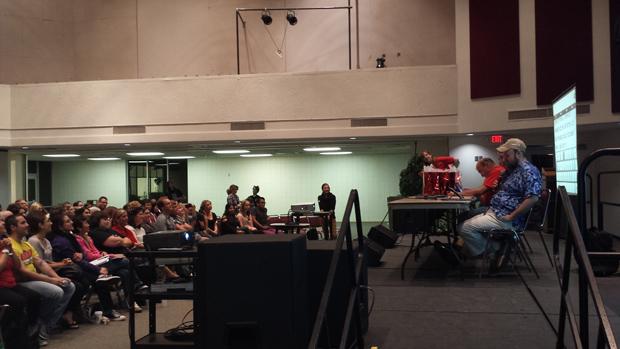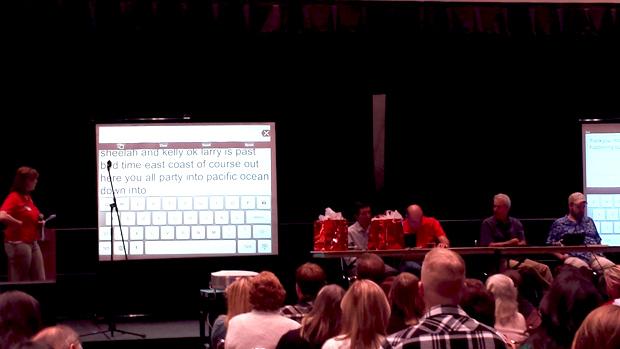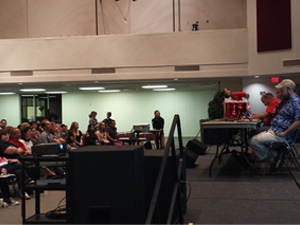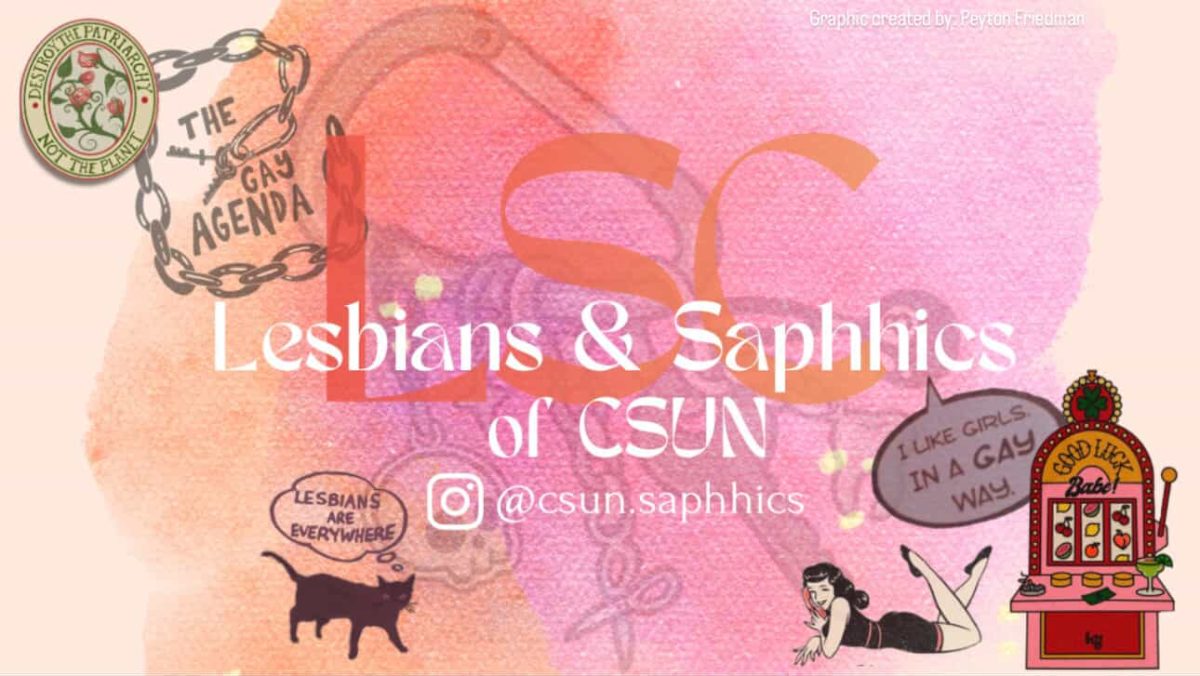
The similarities between autistic and non-autistic students far outweigh the differences as discussed at the “More Like You than Not” event hosted by the National Student Speech-Language Hearing Association (NSSLHA) Saturday night. More than 230 attendees had the opportunity to learn about autism and how people with this disability learn to communicate.
“With this event we really wanted to change people’s perspectives (by) not assuming unintelligence but assuming intelligence regardless of their (autistic people’s) label or their diagnosis,” said Sheelah Peterson, event coordinator and communication disorders and sciences major.
The event took place at the Northridge Center, bringing together families and community members from all over the San Fernando Valley and Santa Clarita Valley.
Peterson said she was very happy that the event accomplished its initial goal and dispelled the myths that people with disabilities such as autism are not as intelligent as non-autistic people.
“They are trying to change people’s perspective because a lot of times there are assumptions, especially with the non-verbal population who have autism, and a lot of times what we assume is lower intelligence when people cannot verbally communicate the way we expect them to,” Peterson said.
Tracy Thresher, 42, and Larry Bissonnette, 52, both autistic guest speakers, talked about their award-winning documentary called “Wretches & Jabberers” and the struggles they have experienced with this particular disability. The documentary was meant to raise awareness to the general public about the speech-language pathology and audiology communities.

Within autism spectrum, some autistic people have the ability to communicate verbally while others are non-verbal and as such must make the necessary adjustments needed to communicate with the public.
Christina Cannarella’s son is autistic and she attended the event to learn how to increase effective communication between her and her son.
“We don’t need words to communicate and that’s the beauty of what Larry and Tracy are doing. People that are not able to share a physical voice are showing us other ways of communication, and it’s like we don’t even need words, words get in the way so many times,” Cannarella said.
Those who couldn’t communicate verbally used their iPads to type what they wanted to say. There were two big screens in place behind the speakers which allowed the audience to read what they were saying. A computer generated voice was also reading out loud what the speakers were typing.
Georgina Thomas, who is taking prerequisite classes for the masters program in speech therapy and is also part of the board of NSSLHA said she was very happy about the event’s turnout.
“This is our first campus-wide community event and it’s just great to see a lot of families come out and be part of this autism awareness event so that they can have some hope. Larry and Tracy are both really inspirational and hopefully we are able to impact a lot of people who showed up today,” Thomas said.






